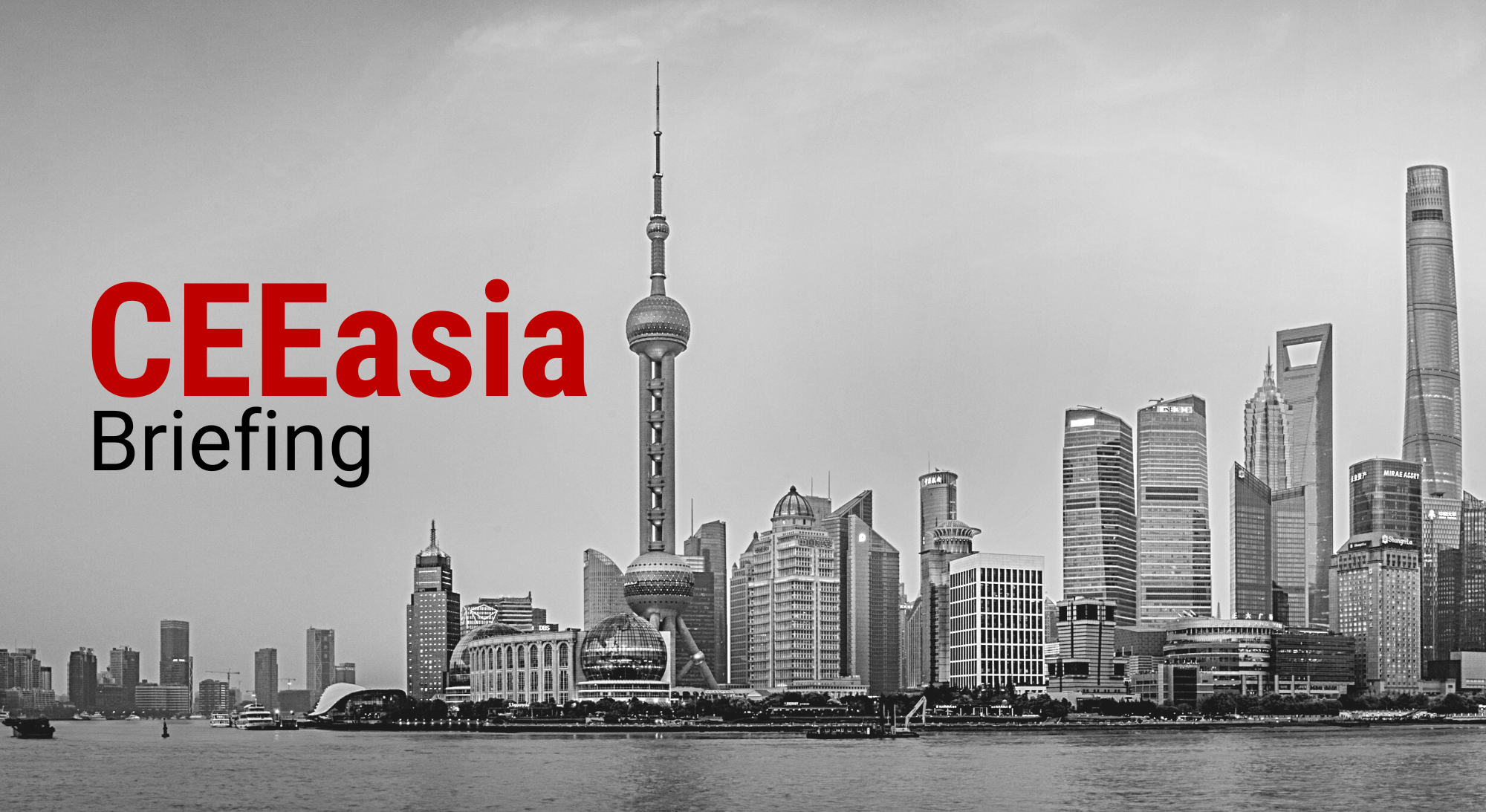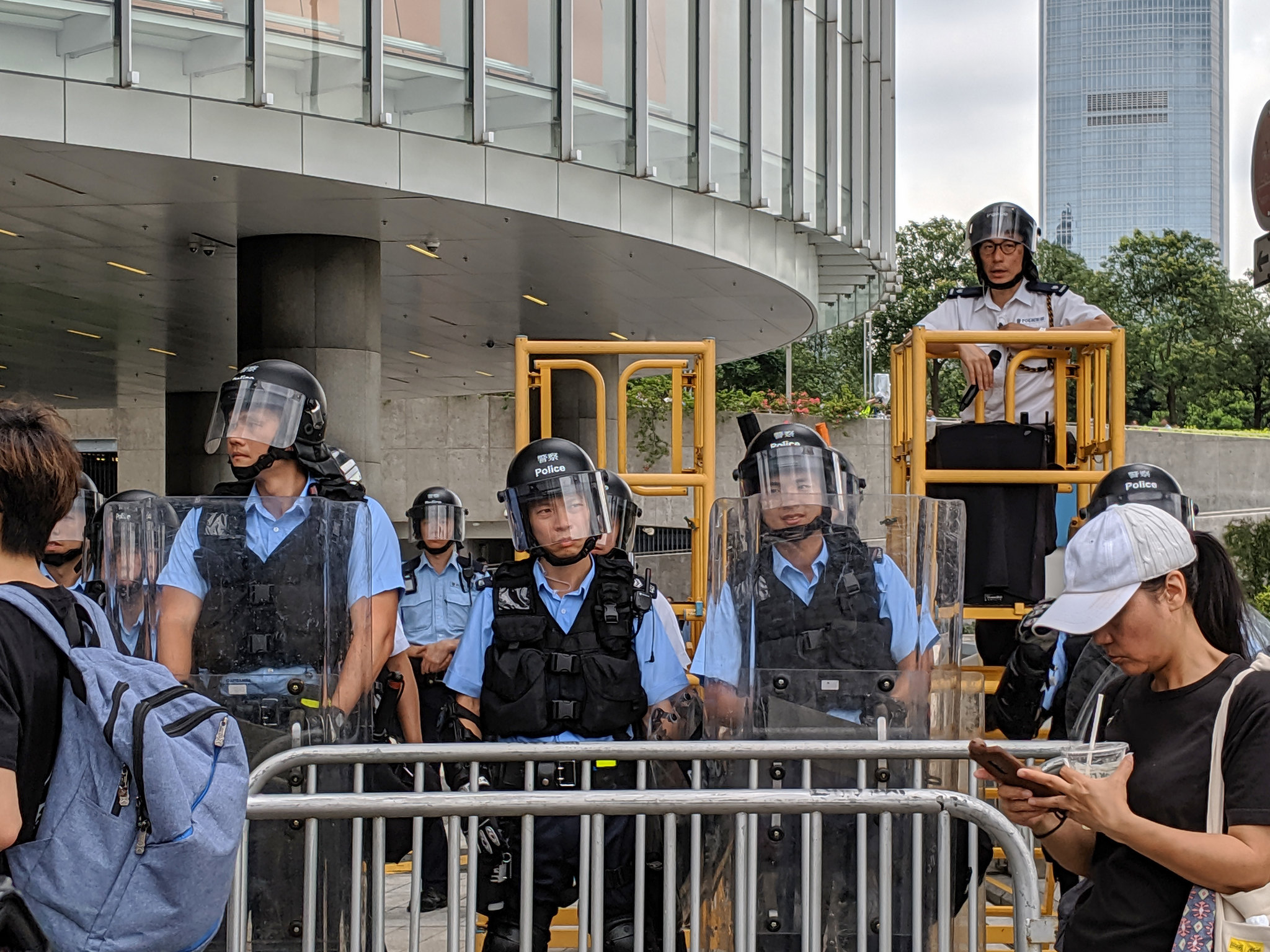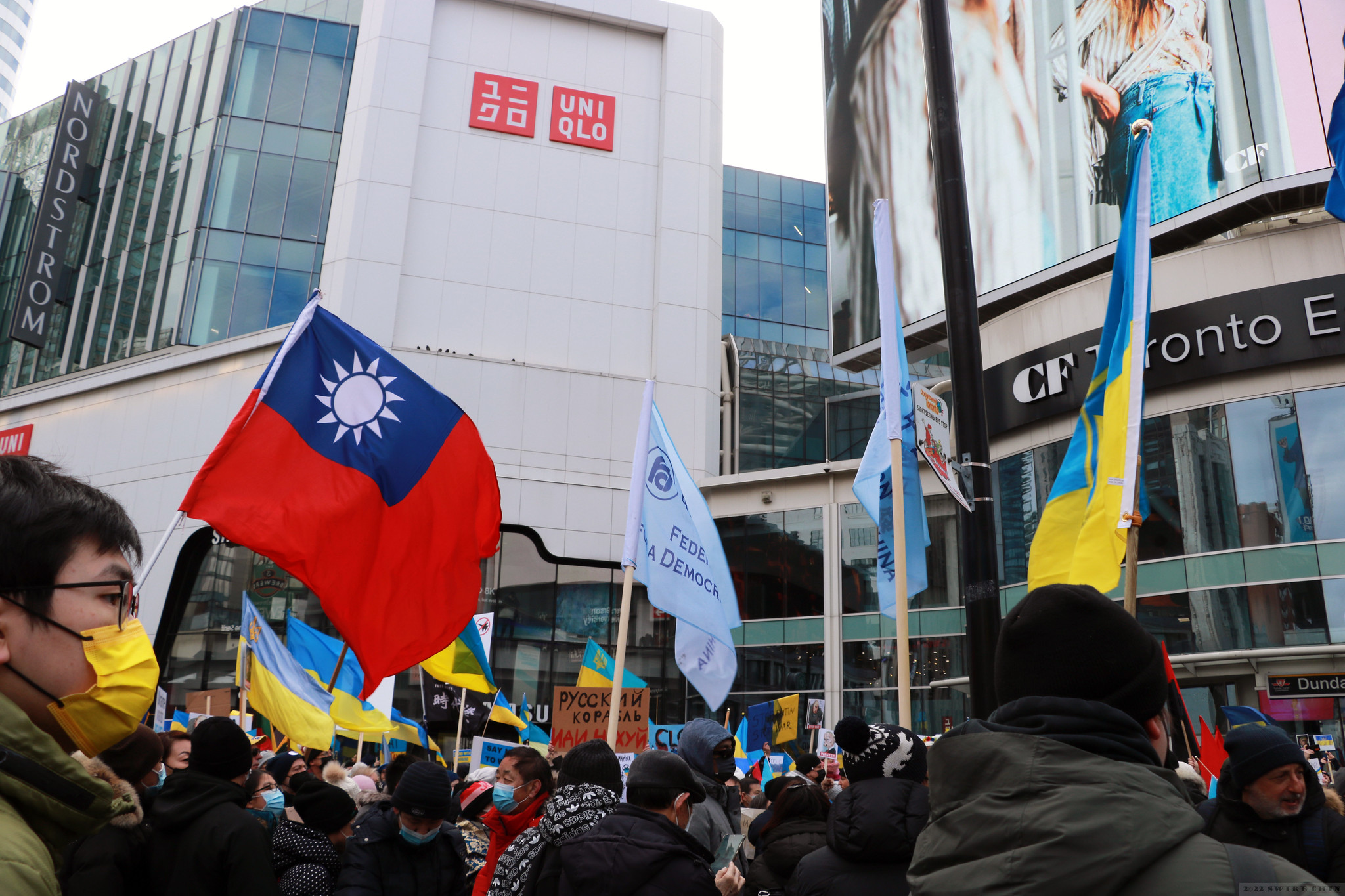Welcome to the 19th issue of the #CEEasia Briefing.
In this issue, we dissect the following topics:
- Slovenia refocuses on the CAI
- Taiwan-Lithuania relations
- South Korea’s efforts to win Czech tender
- Polish pullout from Afghanistan
If you like what you see, please forward this message to your friends and colleagues who can subscribe here.
Do you need to know more about East Asia? Don’t hesitate to shoot us a message about custom analysis tailored to your needs.
1. Slovenia is set to push ahead on the CAI ratification
What’s going on? Slovenian ambassador to the EU Iztok Jarc confirmed Slovenia’s intention to continue technical works on the EU-China Comprehensive Agreement on Investment (CAI) during the country’s presidency of the Council of the European Union. The agreement’s ratification was suspended by the European Parliament following Chinese sanctions targeting several MEPs. Even if the sanctions were lifted, it is hard to imagine any progress from the Parliament’s side, considering its criticism of the rushed conclusion and content of the agreement. Instead, Parliament is now pushing for the negotiations on the EU-Taiwan Bilateral Investment Agreement (BIA). This is seen favorably by the US, which saw the CAI as driving a wedge between the US and EU at a time of post-Trump attempts at transatlantic rapprochement.
Going deeper… Slovenia has a well-documented history of pursuing a balancing act between the US and China. Shortly after signing onto the US’s Clean Network initiative, the Slovenian-Chinese Business Council was founded in order to strengthen the country’s economic relations with China. Slovenia has however long been dissatisfied with its trade deficit and the structure of its bilateral relations with China, which was epitomized in the country’s refusal to send the head of state or government to the last 17+1 summit. The question then remains whether the country’s support for the CAI has anything to do with China’s ‘charm offensive’ following Lithuania’s departure from the 17+1, as Yang Jiechi (CCP Politburo member and former Minister of Foreign Affairs) met President Borut Pahor during his recent visit to Slovenia.
This means… Whereas China’s interpretation of the meeting suggested Slovenia’s willingness to play a positive role in EU-China relations, Slovenia’s readout was much briefer, suggesting an “exchange of views on international issues” occurred. What’s more, several analysts highlighted the country’s pro-US approach when it comes to the EU’s foreign policy. Slovenia is also planning a special EU summit for the purpose of discussing the bloc’s relations with China, with the Prime Minister Janez Janša stating that Xi Jinping will not be invited as the point of the summit is to coordinate the member states’ positions on economic relations with China.
Further Reading
SCMP: Taking the EU reins, Slovenia plans to press ahead on China investment deal
MERICS: Slovenia’s dance with the superpowers
The Diplomat: Yang Jiechi’s Overlooked Visits to Slovenia and Croatia
2. Lithuania: Taiwan’s new best friend in Europe
What’s going on? A lot has happened over the last couple of months in Lithuania’s relations with Taiwan. Amidst the surge in Taiwan’s COVID-19 cases and challenges in vaccine procurement, Lithuania became the first EU country to pledge a donation of vaccines to Taiwan. The country also confirmed its plans to establish a trade mission in Taipei by the upcoming fall. However, the most significant development came when Taiwan confirmed that its de facto embassy in Lithuania will be called “Taiwanese Representative Office”, making Lithuania the first country in Europe and the only second in the world to host Taiwan’s mission under such name. Taiwan’s offices in countries Taiwan does not have official diplomatic relations with normally bear the name of “Taipei”, which is seen as less controversial by the host countries that fear a rebuke from China.
Going deeper… The warming up of Lithuania-Taiwan relations comes amidst its worsening relations with China. Lithuania was the first country to leave the 17+1 grouping, citing the lack of economic benefits brought by the framework. It has also increased its criticism of the business-oriented Franco-German alliance when it comes to the EU’s relations with China, calling for an EU-wide 27+1 approach instead. This is not surprising considering the electoral pledge by the current coalition of center-right parties to pursue a values-based foreign policy. The Freedom Party even went as far as proposing to include support for Taiwan’s independence in the new government’s program.
This means… An increasing number of countries around the world are adopting a more supportive stance towards Taiwan. This seems to be due to the US’s focus on Taiwan in its approach towards China. A growing number of EU members are also redefining their approach to both Taiwan and China. CEE countries are no exception. Besides Lithuanians, a 2020 trip to Taiwan by Czech Senate President Miloš Vystrčil, and a recently announced vaccine donation to Taiwan by Slovakia, are notable cases. However, for the EU to adopt a values-based China policy, the big member states need to change their approach. With Angela Merkel stepping down following the upcoming federal election and the Greens advocating for the centrality of human rights in Germany’s foreign policy, it is to be seen whether Germany will adopt a China-critical stance, and what will this ultimately mean for Taiwan at the EU level.
Further Reading
Bloomberg: Taiwan Angers China with First Europe Office Using Its Name
Focus Taiwan: Lithuania to open trade office in Taiwan this fall
MERICS: Germany’s future China policy – a look into the election campaign
3. South Korea’s efforts to win the Czech nuclear power plant tender
What’s going on? South Korea is intensifying its efforts to win a contract for the construction of a nuclear power plant in the Czech Republic. The journey of the Korean Minister of Trade, Industry and Energy testifies to this. Moon Sung-wook’s first foreign trip was to Prague, where he met with Prime Minister Andrej Babiš and Karel Havlíček, who is both the Minister of Industry and Trade and Minister of Transport. The discussions focused on the planned tender for building a nuclear power plant in Dukovany, as well as the production of electric batteries, extraction and processing of lithium, and developments in the field of hydrogen technologies. Lithium mining and its subsequent use in the production of batteries are of major concern in the Czech Republic, as there is a large deposit of lithium in northwestern Bohemia, and the automotive industry, including the Hyundai plant in Nošovice, accounts for almost 10% of the Czech Republic’s GDP.
Going deeper… The Czechs will announce a tender for the power plant in winter. In addition to South Korea, France, China, Russia, and one US-Canadian consortium are interested in the tender. However, Russia’s Rosatom and China’s Guangdong Nuclear Power Group are unofficially excluded from the competition due to security concerns. In the Czech Republic, there has been a long-standing debate on national security in connection with the possibility of involving Russia and China in the construction of the nuclear power plant. The Czech Republic’s relations with the two powers are currently strained, following the Czech Senate President’s visit to Taiwan in 2020 and Russia´s involvement in the explosion of an ammunition depot in 2014. The Chinese side claims that the Czechs are abusing national security as an artificial barrier against Chinese companies entering the market, whereas the Russians included the Czech Republic in a list of “unfriendly countries”.
This means… The construction, worth more than USD 7 billion, which is to begin as early as 2022, is not only a subject of domestic political competition but also geopolitical influence. A possible award of the contract to a South Korean company would mean a significant increase of South Korean presence in the Czech Republic and Central Europe, where it is already a significant player due to numerous investments in the automotive sector. On the contrary, for Russia and China, it would mean a geopolitical loss. However, the exclusion of Russians and Chinese is still preliminary, as the tender will be announced by a new government, which will be formed on the basis of the October general elections. It is expected that at that time the position of pro-Russian President Miloš Zeman will be stronger, as the president determines who will form the government.
Further Reading
CEIAS: #CEEasia Issue 8
Korea Herald: S. Korea to speed up efforts to bag Czech nuclear plant project
POLITICO: Czech nuclear tender competition dodges Russian and Chinese bids
4. Poland pulls out from Afghanistan, Hungary reconsiders to stay
What’s going on? As the US troop withdrawal from Afghanistan nears its completion, NATO troops have now also left the country. Over the past two decades, countries such as Slovakia, Czech Republic, Poland, and Hungary all sent their troops to Afghanistan. But the departure of the main security provider has left NATO troops exposed meaning that they were left with no other choice but to withdraw alongside the Americans.
Going deeper… However, after the Polish President announced that Poland will end its military engagement in Afghanistan by the end of June, it has emerged that Hungary is reconsidering deploying some troops, alongside Turkey, at the Kabul airport. Turkey is responsible for maintaining security at the airport even after the US withdrawal. This is because the airport is considered vital, not least for the diplomatic staff and international personnel that remain in the city. Two sources cited by international press reports said that the idea was discussed between President Erdogan and Hungarian Prime Minister Viktor Orban on the sidelines of a NATO summit in June. Indeed Hungary already had some experience in securing Kabul airport between 2010 and 2013. According to the Hungarian ministry, the country previously had 150 troops deployed in Afghanistan.
This means… Despite the Hungarian officials tying the issue of security in Kabul into migration, the Turkey-Hungary partnership suggests a potential of authoritarian clique being now developed within NATO. While for Turkey, strengthening its presence in Afghanistan ties back to its geostrategic interest, Hungary has become much closer to Istanbul over the past few years. Yet there are no specific details about the future of the arrangement and it remains to be seen whether the US would agree to such an arrangement.
Further Reading
Middle East Eye: Why Turkey wants to partner with Hungary to protect Kabul airport
Reuters: Poland withdrawing troops from Afghanistan, says president






